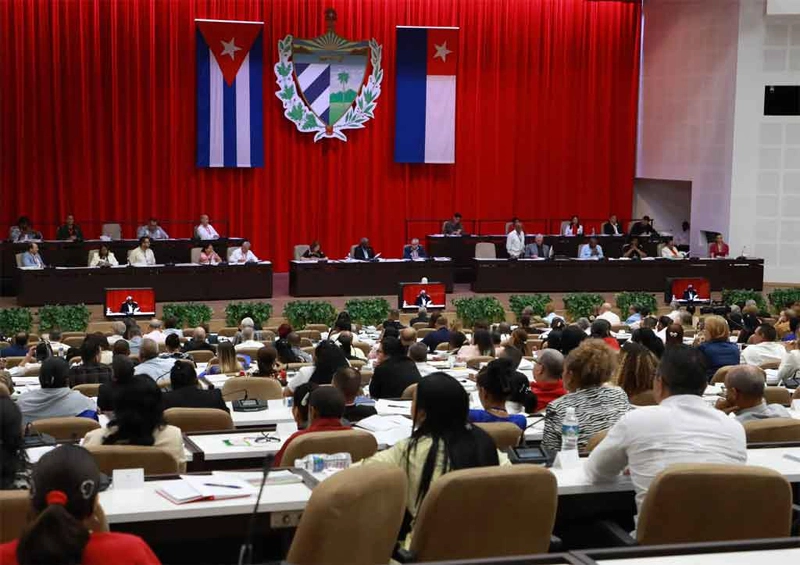The deputies of the National Assembly of People’s Power (Parliament), meeting for the Fifth Ordinary Session of its 10th Legislature, approved this Friday a Constitutional Reform Law to Article 127 of the Constitution of the Republic.
The modified point concerns the maximum age requirement to be considered for the position of President of the Republic for a first term, based on the analysis proposed by Army General Raúl Castro Ruz, leader of the Cuban Revolution, as explained by Esteban Lazo Hernández, President of Parliament.
José Luis Toledo Santander, president of the Permanent Working Committee on Constitutional and Legal Affairs of the supreme body of state power, explained that this process is based on Article 227, paragraph B, of the Constitution of the Republic, which empowers the Council of State to promote reforms to the content of the Magna Carta, as is the case here.
He noted that the text establishes that to be President of the Republic, one must be at least 35 years of age, fully enjoy civil and political rights, be a Cuban citizen by birth and hold no other citizenship, and that one must also be at least 60 years of age to be elected to that office for one’s first term.
The amendment, presented by the Council of State, removed the aforementioned second paragraph of Article 127, maintaining the rest of the constitutional provision, which states that those over 60 years of age, supported by experience, loyalty, a track record, and a strong commitment to the Revolution, may be elected to this high position.
Toledo Santander clarified that this reform does not entail ratification by referendum, as it does not refer to the composition of the National Assembly of People’s Power (ANPP) or the Council of State, to the powers or term of office of the President of the Republic, or to the rights, duties, and guarantees enshrined in the Constitution, as established in Article 228.
He clarified that the change responds to current circumstances, different from those existing at the time of the Constitution’s approval, characterized by a marked population decline and, consequently, the need not to limit the possibility of electing individuals who, by meeting the aforementioned requirements, can assume this position in a manner most beneficial to the Revolution, thus continuing to contribute to strengthening institutionality and preserving the revolutionary process.
The vote was validated in accordance with Articles 108, paragraph A, and 226, which establish the power of the National Assembly of People’s Power to approve reforms to the Constitution when more than the two-thirds majority required for its exercise is present in the chamber.
According to Article 103 of the Constitution, the National Assembly of the People’s Party is the sole body with constituent and legislative power in the Republic.
With information from the Cuban News Agency
- Installation of Photovoltaic Systems in Rural Communities in Holguin - 19 de January de 2026
- 39th City Salon Opens in Holguin - 19 de January de 2026
- Habanos Festival Among Cuba’s Most Important Tourism Events - 19 de January de 2026

